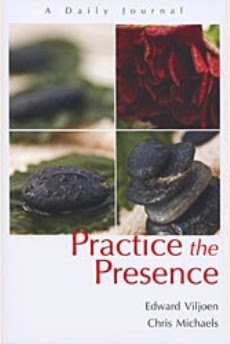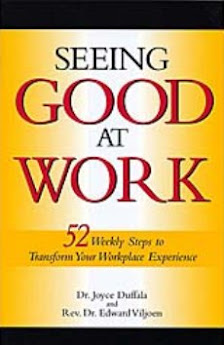(published with permission)
The Ancient
Wisdom and New Thought tenets that are the foundation of Religious Science
include and promote the idea of loving one another. This includes those on both sides of evil
acts. Loving each other, finding the good (God) in all situations does not
inhibit or prohibit our being proactive for the expression of good in the
world. The four introductory chapters of
the Science of Mind textbook are entitled: The Thing Itself- God, The
Way It Works – Through Us, What It Does – It impersonally rules, as
Love, through Law, and How To Use It- through daily meditation
and prayer. [1] The italicized words are my very succinct
summaries of the content of these sections, which of themselves are very short
but powerful
summaries of Religious Science. Within the forth section, in response to the hypothetical question, “Should we refuse to look at sickness, poverty, and unhappiness?” Ernest Holmes, author of the SOM textbook and founder of Religious Science, responds, “We will not refuse to help the helpless or lift up the fallen, but we will refuse to wallow in the mud because of our sympathies.” [2]
I am so
grateful for the opportunity to discuss the relationship of Social Activism and
Spirituality from a Religious Science perspective. We believe that our entire
life experience is based on consciousness.
We teach that as we raise/shift our consciousness, from lack to
abundance, our circumstances will change; that as we affirm and visualize a new
or changed condition, conditions will change.
We have been ‘accused’ of having a world view that all is well,
regardless of “appearances”; that this is a perfect universe, because life
itself is the out-picturing or manifestation of a perfect God; a God that is
the Doer and the Being behind, in, as and through all of creation. In other words, we believe that God is all
there is.
It is exactly because of this belief system that we are called upon, compelled, as Religious Science/SOM practitioners and ministers to use our knowledge and understanding of what constitutes freedom, backed by our spiritual understanding and practices to co-create a “world that works for everyone.”[3] While we emphasize personal/individual transformation, we do so with an understanding that our world is peopled with individuals that together make up families, and geographic, spiritual, social and political communities. We believe that our collective viewpoints in each of these divisions constitute what we refer to as ‘race (as in human race) consciousness’ or a collective viewpoint(s) about every aspect of life. As we believe that thought is creative, this race or collective consciousness is constantly creating circumstances, conditions and interactions that are either fear or love based. Political and social activism that is spiritually based seeks ways to answer the questions, ‘How do we shift from fear to love based interactions in places where it is most needed?’ ‘How do we identify those places?’ How can we have love based dialogue? What actions are required? If God is all there is and God is good all the time, how do we explain the presence of lack of any type? How do we explain conditions such as disease, starvation, homelessness and poverty? How do we explain “natural disasters”? Do we even want and/or is it possible to have a “world that works for everyone”? [4]
The basic tenets of most religions, as well as modern science refer to or acknowledge that we, as humans, have choice. Whether we believe that this ability to choose is the result of Adam and Eve’s eating from the fruit of the Tree of Knowledge as reported in the Hebrew/Christian Bible: Genesis 3:5 "For God knows that when you eat of it your eyes will be opened, and you will be like God, knowing good and evil.", or if we believe the more scientific opinion that choice is a distinguishing characteristic of sentient or conscious beings, we are generally in agreement that we can distinguish right from wrong, good from evil.
We teach that
God is Love and God is Law. Love
operates through the Law. Various
religious and secular disciplines reference the idea of cause and effect. Science suggests that nature is always
seeking to balance itself. What does
this have to do with human social activism?
Well, let’s look at one of the most basic and necessary relationships
between humans and nature. We need
oxygen to live. Trees, and other plants
give off oxygen. We exhale carbon
dioxide. Trees (and other plants) need
carbon dioxide for photosynthesis. So,
in addition to eliminating potential sources of cures for a variety of
diseases, when we destroy forests, we are also reducing our own supply of oxygen. Clearly lack of oxygen is a bad thing! Does
this mean that the individuals that are responsible for clear-cutting the
forests are bad people? Or more
importantly, does it mean that they are lesser expressions of God? Absolutely not! Our spirituality, our belief that we are
individualized expressions of God leads us to use our spiritual practices of
meditation and prayer to create the language and the action that will set a new
cause in motion; that will intuitively direct our dialogue with those who may
be operating from a fear-based consciousness of lack; that will guide us in
developing national and international legislation and practices that serve the
best and highest good of everyone on the planet.
When we look at acts of genocide, terrorism, homophobia, misogyny, racism, etc., these are acts which are morally wrong. Morally wrong is one of the definitions of evil.[5] And yes, the individuals or groups who commit these acts are expressions of the Divine. We forgive them, but do not condone their actions. As Religious Science Practitioners and Ministers, we are responsible for teaching not only love and forgiveness, but social responsibility and stewardship. If we have dominion, as we claim we do, we have a responsibility to be good stewards of that over which we have dominion.
In offering our help we work from an understanding that our spiritual toolboxes include the wisdom that we have garnered through our life experiences. Just as we take advantage of medical knowledge and experience to heal the sick, so must we take advantage of social, political and moral knowledge and experience to heal social and moral ills in our communities and on the planet. We are all inextricably connected. We can no more allow moral or social recklessness than we can allow children to play with matches.
When I was a social activist, with no spiritual underpinnings, I was angry, a victim, and lived from lack. When I became a Religious Scientist, I turned my back on the Revolution and declared that all would be resolved in due time through an evolutionary shift in consciousness (we sometimes refer to this as a spiritual bypass.) As a Religious Science Practitioner and Minister in training, I understand that to minister means to “give service, care or aid.”[6] I am the sum total of my life experience. What has changed is my perspective. I do not see myself or anyone else as a victim. I know that we are all connected. That God is both the center and the circumference of the Universe. I know that we, humans, are magnificently diverse expressions of life; and that we are each entitled to, as a birth right, abundant, love filled, healthy lives. I know that everyone is entitled to food, education, clothing and shelter. I know that as a Religious Science Practitioner, it is my personal and professional responsibility to engage in, design, and support life affirming, spiritually based conversations, actions and legislation. Social activism from a Religious Science perspective is spiritual activism. Spiritual activism is our opportunity to demonstrate the truth or the science in our religion.
Please visit our website, http://www.unitedcentersforspiritualliving.org, for a more detailed description of what we believe and to read our Global Heart Vision.























No comments:
Post a Comment